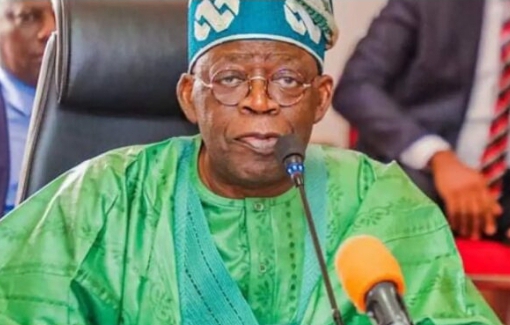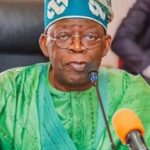In the public discourse surrounding leadership, two terms are often interchanged as though they are the same—politics and governance. The confusion between these two concepts blurs the lines of leadership, causing the citizens of Nigeria to misjudge what they expect from their leaders. Yet, politics and governance are two fundamentally different pursuits.
While politics revolves around the acquisition of power, governance concerns the administration of a nation or community once power is attained. Politics is a relentless pursuit of power and it is distinct from governance, which demands a mastery of administration and the capacity to lead with wisdom. Both require distinct skills, mindsets, and approaches, yet in Nigeria, these realms are frequently mixed, resulting in widespread inefficiency and disillusionment.

Politics, in its essence, is a powerful, complex, and often ruthless pursuit. It is a game of strategic moves, intense competition, and dogged determination. Politics, particularly in Nigeria, is like a battlefield where the ultimate goal is power—by any means necessary. In this realm, success is measured not by policies or long-term plans but by the number of votes, alliances, and manipulations that can be accumulated. It is a domain that values tactics over truth, strategy over substance, and victory over vision.
At its core, politics focuses on attaining power. It thrives on the passion to control, the determination to win, and the willingness to make the necessary sacrifices—whether ethical or not. In the Nigerian context, politics is a dynamic game that starts long before the elections, with manoeuvrings behind closed doors, promises made and broken, and alignments created and dismantled, all in the name of winning.
Read Also: The Devastating Impact of Rampant Corruption on Nigerian
Those who play the game of politics are known as politicians, and their role in society is to capture political power, often through elections. In Nigeria, elections are seen as a gladiatorial contest where victory is not just desired but needed at all costs. Politicians enter this race with strategies that include controlling primary elections, mobilizing resources, and exploiting every conceivable avenue to rise to power.
In this landscape, any method can be justified as long as it guarantees a win. This is where tactics like vote-buying, political thuggery, and smear campaigns become the norm, as Nigeria’s electoral process becomes a heated battleground.
As the election season kicks off, politicians invest heavily in grassroots mobilization, media campaigns, and even behind-the-scenes deals. They make promises that, more often than not, are mere stepping stones to power rather than genuine commitments to the people.

Politicians excel at one thing—winning elections. However, this proficiency in the art of winning does not necessarily translate into the ability to govern effectively once the elections are over.
Governance, on the other hand, is the delicate art of managing a society’s affairs. Once political power is won, the next step is governance—the administration of public resources, policies, and programs that affect the day-to-day lives of citizens. Governance is less about the competition for power and more about collaboration, coordination, and leadership.
Read Also: How Nigeria’s Stolen Wealth is Shaping Its Future
Effective governance requires a deep understanding of society’s needs, the ability to prioritize long-term development over short-term gains, and a commitment to creating systems that serve the public good. It involves making decisions that benefit all members of society, ensuring the efficient delivery of services, and maintaining law and order.
Governance is not about the thrill of competition but the challenge of building and sustaining a functional society. Whereas politics thrives on strategic thinking and the ability to manoeuvre through power structures, governance requires a different set of skills—patience, empathy, problem-solving, and the ability to lead through collaboration.
Read Also: Nigeria’s Masses Struggle with Inequality and Exclusion from the Nation’s Commonwealth.
Governance is about understanding complex issues and assembling the right minds to address them. It’s not enough to be politically savvy; governance demands a level of maturity, foresight, and skill that often goes beyond academic qualifications.
In fact, many Nigerian politicians struggle with governance because they assume that political success automatically translates to administrative competence. But the reality is that governance is far more nuanced. It requires a combination of education, practical wisdom, and the ability to coordinate across sectors.

Successful governance means bringing together professionals from various fields—economists, engineers, educators, and health professionals—and creating a synergy that benefits the nation. It demands that a leader go beyond the political theatrics and focus on service delivery.
Take, for example, the regime of former President Olusegun Obasanjo, which stood out as one of the few administrations in Nigeria’s history to assemble a competent and diverse team of professionals from various fields. Under his leadership, these experts worked diligently to improve the county’s finances, infrastructure, healthcare, and education, despite the political scheming of the time. His administration demonstrated that governance is a collective effort, requiring the collaboration of skilled minds, rather than a solo act by one politician.
Read Also: The Incursion of Political Merchants in Nigeria Politics
While Nigerian politicians may be experts in winning elections, their skills often fail them when it comes to actual governance. The tactics used to ascend to power—rhetoric, populist slogans, and manipulation of the electorate—do not help when faced with the everyday challenges of running a nation. Governance requires competence in administration, the ability to make tough decisions, and a commitment to national development over personal gain.
The gap between political success and governance competence is glaring in Nigeria. Politicians who are adept at fundraising, manipulating electorates, and orchestrating political manoeuvres often find themselves struggling to manage public resources efficiently or implement policies that bring about meaningful change. Instead, they become preoccupied with recouping their election investments—turning public office into a cash cow for personal enrichment.
One of the greatest challenges Nigerian politicians face in governance is their tendency to prioritize personal wealth accumulation over effective administration. After spending vast sums to secure political office, many officeholders become focused on recuperating their investments. This results in corrupt practices, as politicians divert public funds, engage in contract inflation, or siphon money through elaborate schemes.
The focus on self-preservation creates a leadership void in Nigeria, where politicians remain in office but are detached from the core responsibilities of governance. The cost is borne by the citizens, who suffer from poor infrastructure, inadequate healthcare, failing education systems, and rampant insecurity.
Instead of focusing on policies that will uplift the nation, many politicians in office are concerned with covering their tracks and securing their financial future. This failure in governance undermines the development of the country and leaves a legacy of inefficiency and despair.
Read Also: Nigeria’s Wicked Generations: From Slave Traders to Corrupt Youths
In Nigeria, the distinction between politics and governance is often blurred, yet these two pursuits are vastly different. Politics is a game of power, tactics, and competition, while governance is the practice of leadership, administration, and service. Politicians may excel at winning elections, but that does not guarantee their competence in governance. The skills required for governance go beyond political manoeuvring—they demand a dedication to public service, the ability to coordinate diverse teams, and a commitment to long-term national development.
It is time to rethink our understanding of politics and governance in Nigeria. Citizens must demand more from their leaders—beyond winning elections, they must be held accountable for their governance. The era of electing politicians based solely on their political savvy should be replaced by an era where competence in governance is paramount. Only by distinguishing these roles can Nigeria hope to foster the kind of leadership that will ensure its growth and development for future generations.
Born in Ekiti State, Nigeria, Idowu Faleye is a Policy Analyst with an academic background in Public Administration. He serves as the lead Analyst at EphraimHill DC, and he’s the founder of EphraimHill DataBlog which delivers regular blog posts on matters of public interest. He can be contacted via WhatsApp: +2348132100608 or ephraimhill01@gmail.com












































![The Trend of Insecurity in Nigeria. [Part 2]](https://ephraimhilldc.com/wp-content/uploads/2024/09/Computer-Monitoring-of-Remote-areas.png)


































